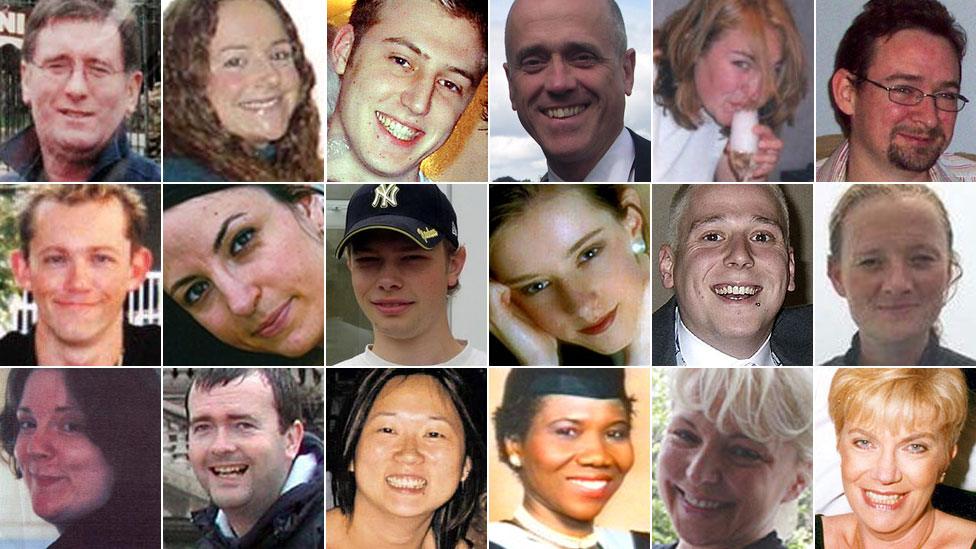'Surviving 7/7 terrorist attacks changed my life'
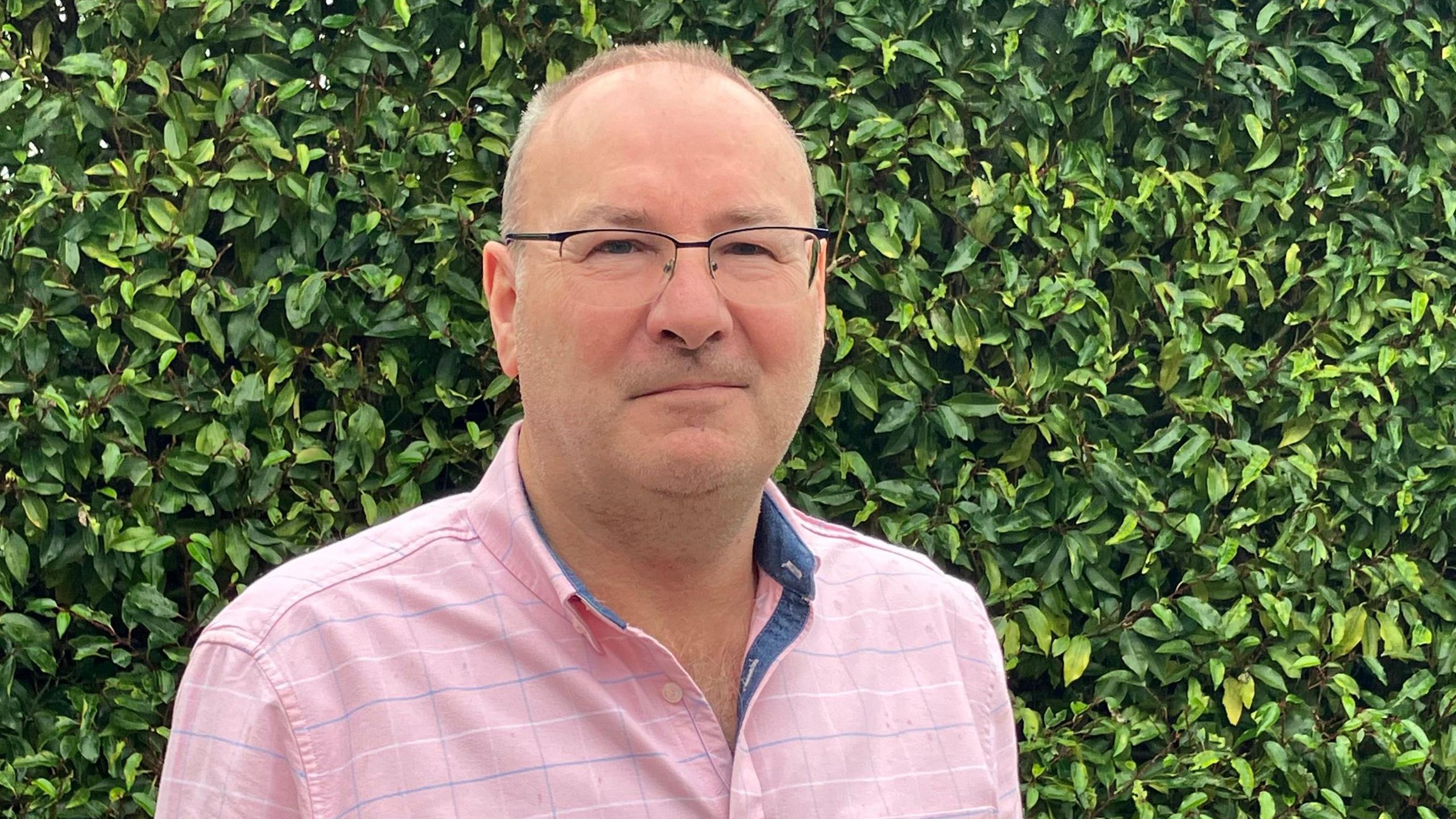
Bill Mann was a passenger in the bombed carriage at Edgware Road in 2005
- Published
On 7 July 2005, London's public transport system was targeted by four suicide bombers who killed 52 people and injured more than 700 during the morning rush hour. Bill Mann, 60, survived the attack and recounts how it changed his life completely.
Mr Mann was travelling in a Tube carriage on his way to work in Paddington when Mohammad Sidique Khan, 30, detonated a bomb 08:50 BST as the train was coming into Edgware Road station.
He survived with minor injuries, but he described that following the blast he realised what mattered in his life.
Mr Mann, from Brentwood, Essex, said: "The only things I wanted to live for were the things that money couldn't buy.
"I wanted to be here to have dinner with the kids in the evening, read them books, put them to bed, and I could do all those things regardless of what house I'm living in and what car I drive."
Two other bombs were detonated on the London Underground at Aldgate station and Russell Square station and a third bomb exploded on a red double-decker bus beside Tavistock Square.
"My first memory is actually of flying through the air to the opposite doorway. I thought is this it, is this where it all ends?
"I almost felt surprised because it had never occurred to me that I might die young.
"There was a brief pause, a brief moment of silence, and then the screaming started and I'll always remember it because there were two distinct screams.
"I could hear the screams of people in the carriage that were just hysterical, but I could also hear the screams of the people that were badly injured and dying and they were very, very different."
Mr Mann stayed onboard the carriage to try and help the injured, before being taken above ground to a nearby Marks and Spencer and then to a hotel.
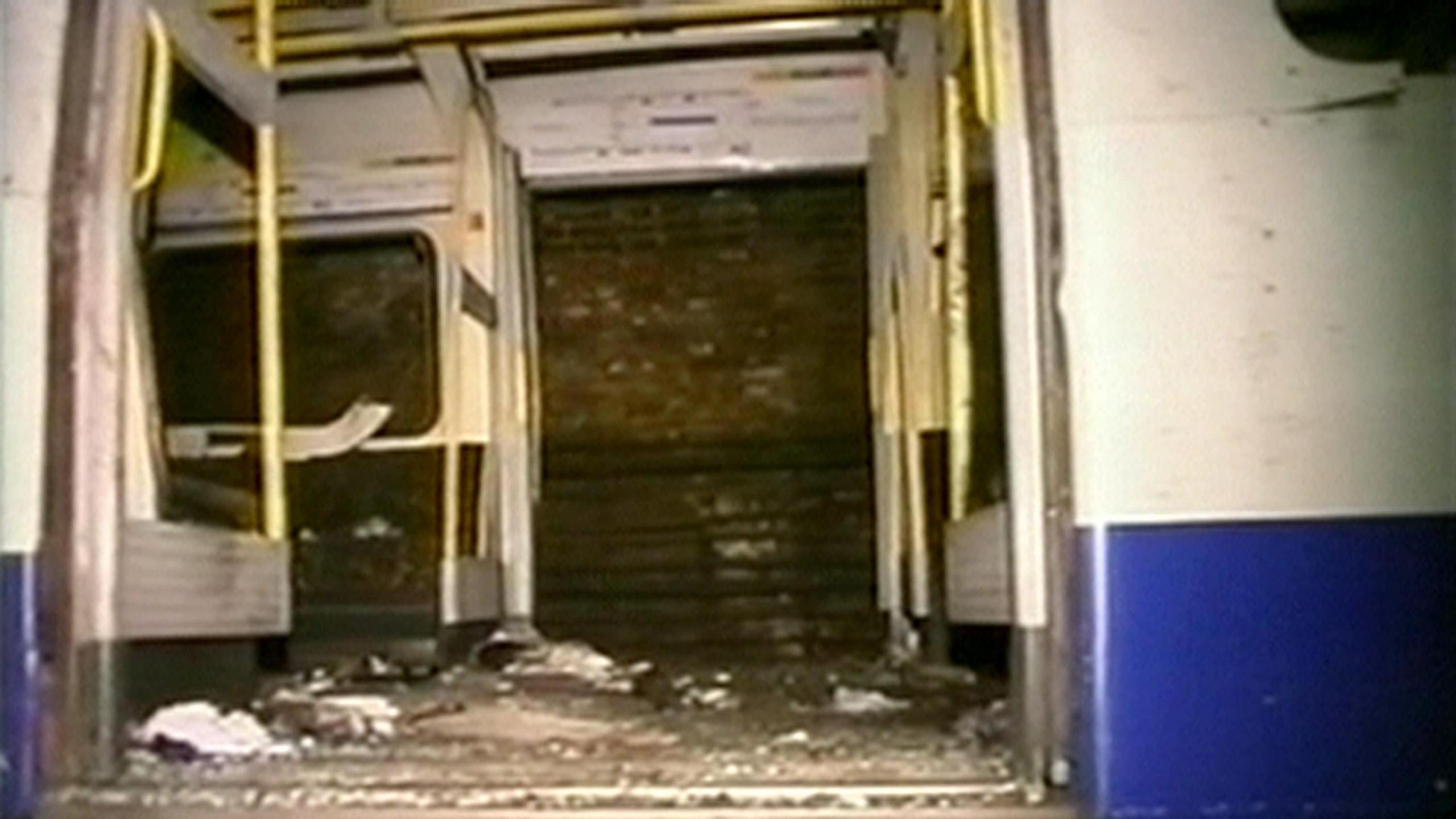
Bill Mann survived the bomb attack onboard this tube train at Edgware Road
Two years after the terrorist attack Mr Mann's wife of 24 years, Johanne, was diagnosed with cancer.
"It felt like I was back in the train, but obviously in many ways it was worse because it was affecting the whole family and the children were very young so that was incredibly hard to deal with," he said.
Johanne passed away in 2011, leaving Bill to raise his children alone. He later left his career and became a life coach to try and help others.
"I can't describe how much my life had changed during that period because of those two events. Some days I would wake up in a dreadful state and think well I've just got to get through today and tomorrow would be different.
"Sometimes it would be take each hour as it comes, eventually it does become a bit easier."
'We searched for Carrie'
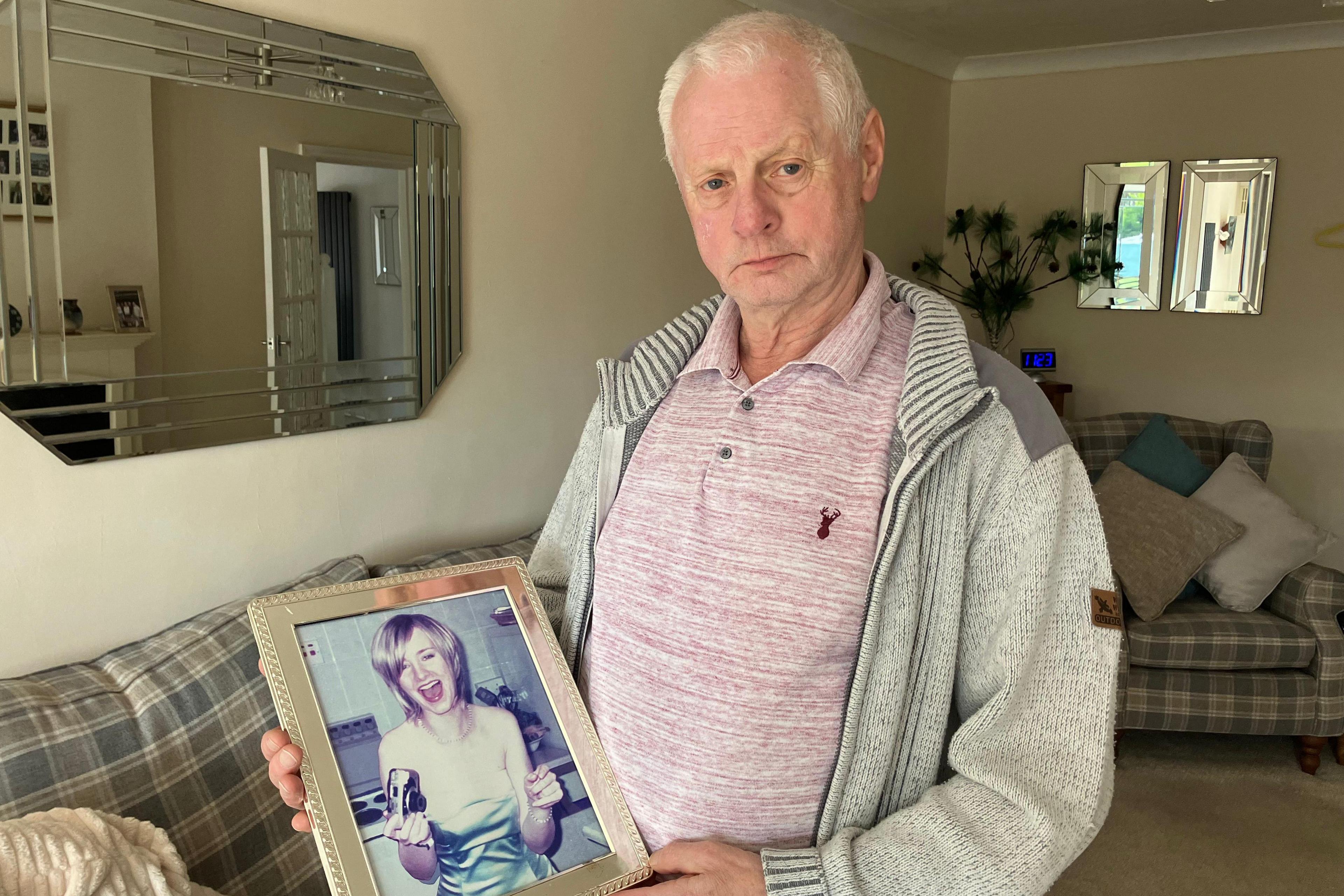
John Taylor went looking for his daughter Carrie in the aftermath of the attack
On the other side of London, the bombings robbed another family of a daughter and sister.
Carrie Taylor, 24, from Billericay, Essex, had just begun a new job at the Royal Society of Arts and had commuted into Liverpool Street station with her mum June.
They parted ways and Carrie took a Circle Line train towards Aldgate where bomber Shehzad Tanweer, 22, detonated a bomb which killed her and six others.
Her father, John Taylor, was in Essex at the time and he spent days searching for his daughter in hospitals in London following the attack.
"We went up to the Royal London Hospital in Whitechapel to see if Carrie was there," he said.
"We had a picture of Carrie with us and we showed it to the receptionist, she said there are so many people here, but told us there was a lady upstairs that they couldn't identify.
"She took the photograph and went up to see this other lady, unfortunately she came back down and said, 'I'm very sorry sir, it's not Carrie'," he added.
John, June, and Carrie's brother Simon would have to wait ten days for formal identification to confirm Carrie had been killed in the blast.
John, 76, added: "The minute someone tells you you've lost your daughter, you don't know what to do, you just descend into a black hole.
"You never get over it, but you get used to it. I still go to the station and can be sitting waiting to pick my son up and thinking, Carrie should be on that train."
'I had to help'
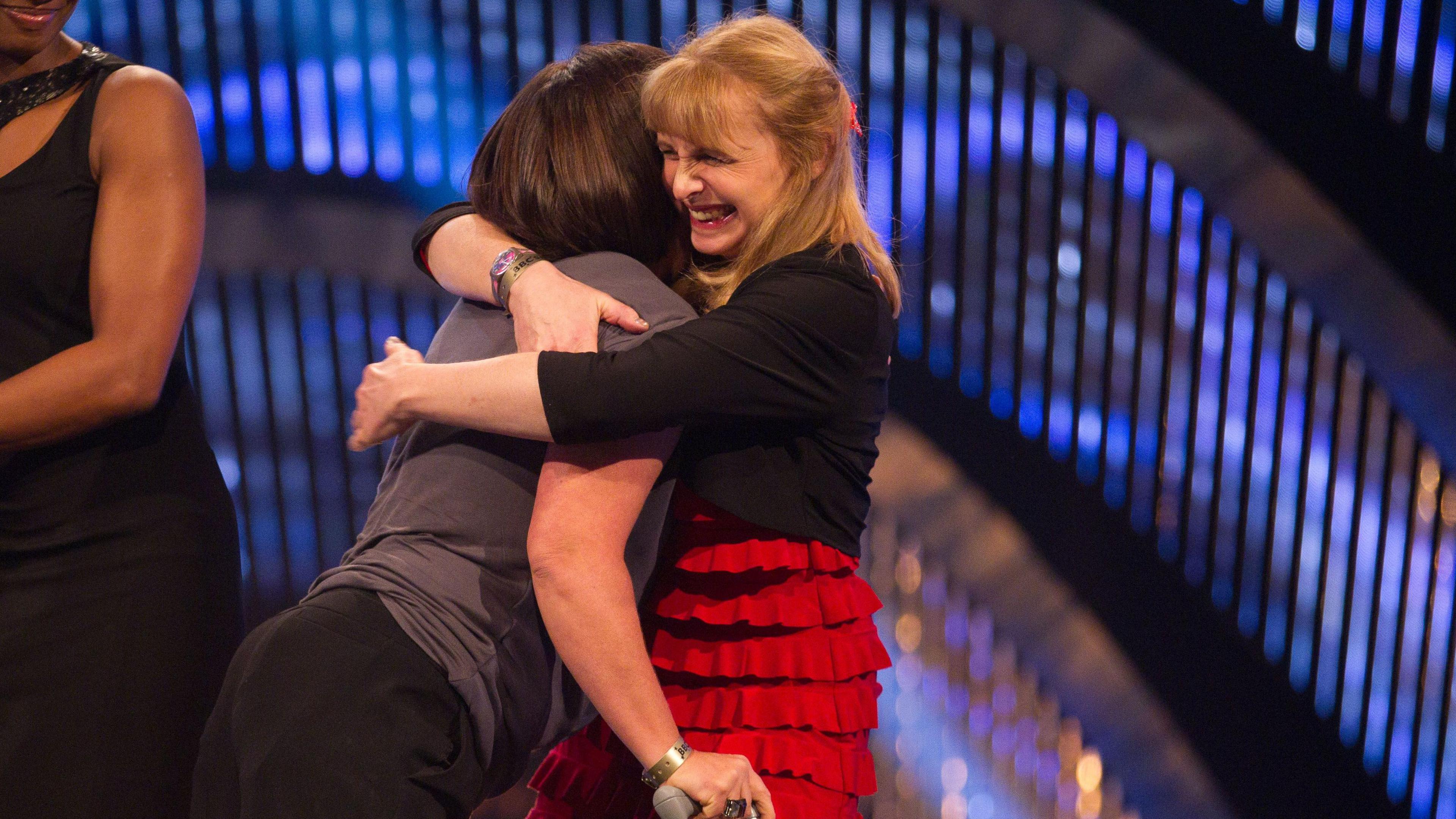
Liz Kenworthy met Martine Wright again at the BBC's Sports Personality of the Year
Off-duty police officer Elizabeth Kenworthy, from Nazeing, Essex, was travelling on the same train as Carrie that day.
She moved towards the bombed carriage after the explosion to tend to the injured and was later awarded an MBE for bravery.
She said: "We were underground and I couldn't communicate and couldn't protect the scene so I thought I could give basic first aid to keep these people going."
Ms Kenworthy keeps in touch with two of the injured she helped, including Martine Wright, who went on to compete for Team GB in the sitting volleyball competition at the Paralympic Games in 2012.
She added: "Being a police officer it was my duty to do what I could to help.
"On the anniversaries, I always think of the families who lost loved ones and people who were so badly injured and what they had to live with.
"They are the people we need to care about."
Follow Essex news on BBC Sounds, Facebook, external, Instagram, external and X, external.
'I didn't know if I was going to live or die'
Essex people caught up in the 7/7 London bombings recall their experiences of July 2005
Get in touch
Do you have a story suggestion for Essex?
Related topics
- Published3 July 2015
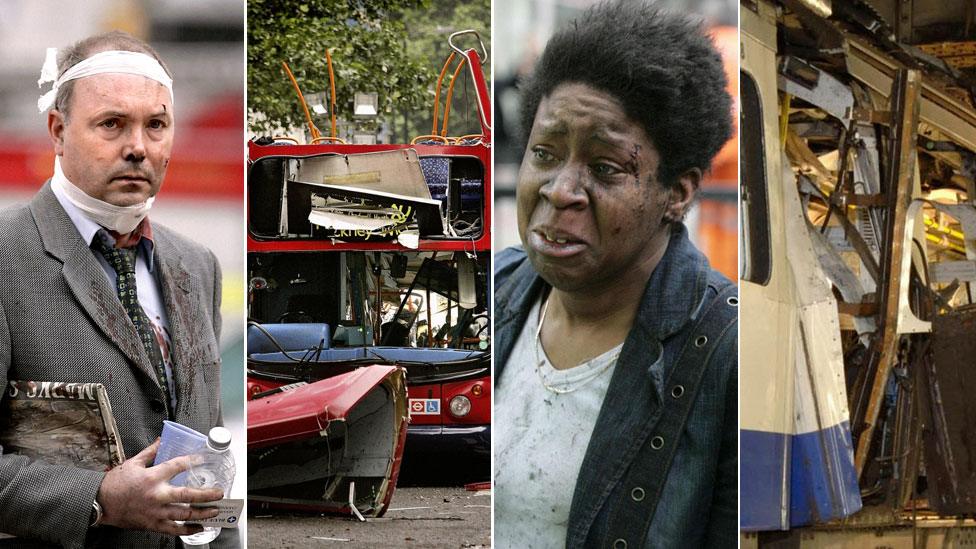
- Published23 June
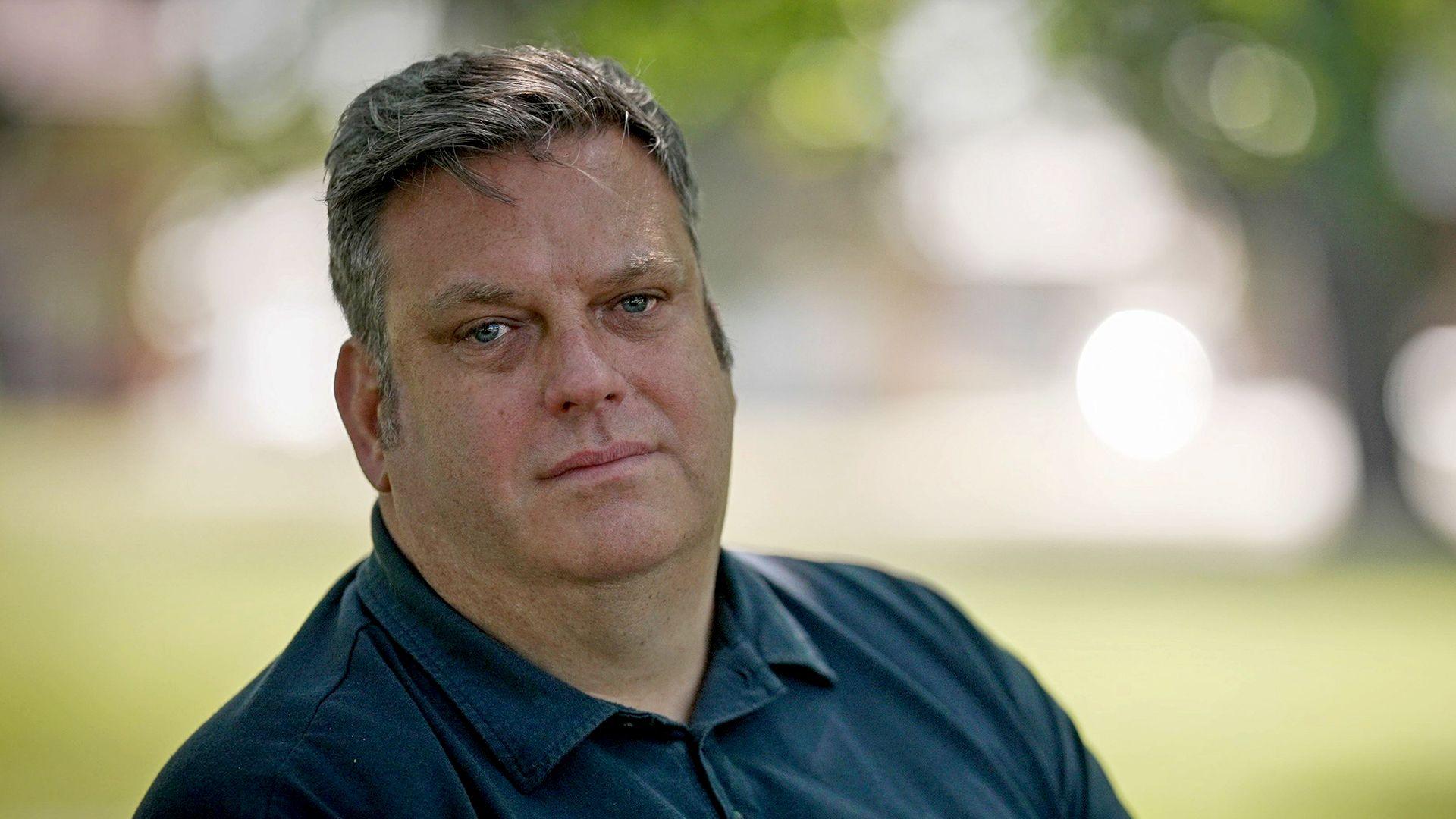
- Published3 July 2015
